First up is Hasegawa's lovely A6M2 in 1/48th. I built mine to represent a Model 11 flown by LT. Minoru Suzuki while
serving with the 12th Air Group, based ashore near Hankow, China in early 1941. The victory markings on the tail represent
the combat claims made by several pilots who flew the aircraft, and historians seem to agree that Suzuki's final total was
8 destroyed.
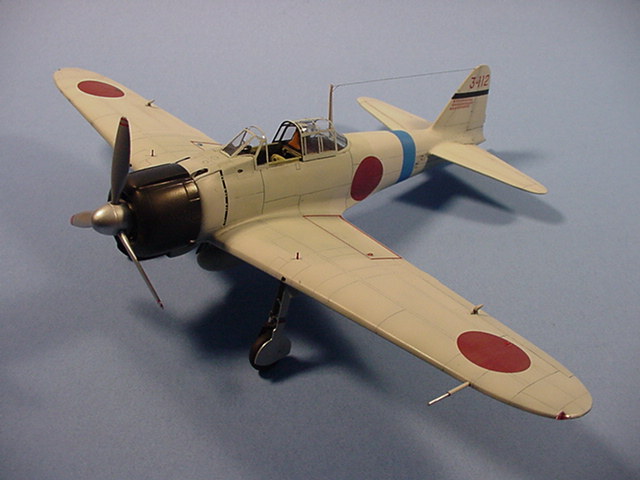
|
| I used both Floquil military flats and WEM paints along with Aeromaster decals on this model |
The peripheral areas of the model were painted a chalkier light grey than the center, the latter retaining the greenish
cast of the WEM Mitsubishi Grey-Green, in order to emulate the effect of tarps suspended over the cockpit and cowl while the
plane was at rest. Tarps were placed over land-based Zeros by groundcrews to prevent the sun's heat from becoming excessive
in key areas; the practice has also been demonstrated in photos of aircraft based in the Indo- and Southwest Pacific Areas.
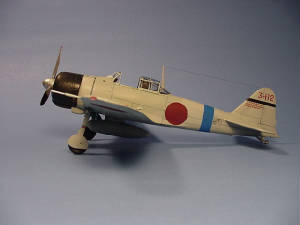
Skipping to the spring of 1943, below is Hasegawa's 1/48th A6M3, Type 32 built in the markings of NAP1/c Kiyoshi Ito,
while stationed at Timor with the 202nd (formerly the 3rd) Kokutai. Ito was credited with 17 victories during the
war, serving in the Indopacific, Southwest Pacific, and Home Islands Defense campaigns
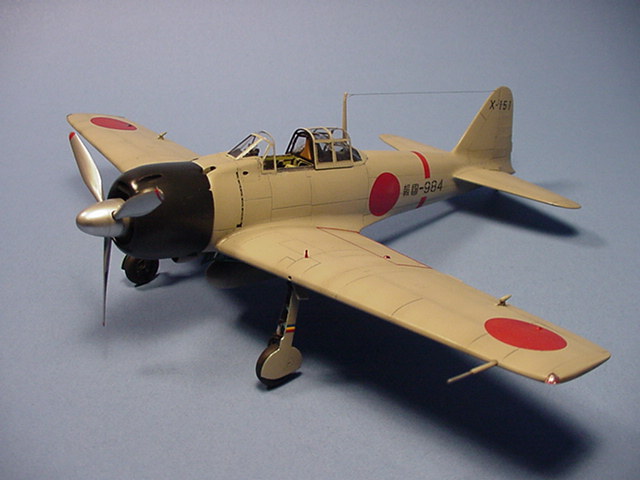
A combination of WEM colors was used to create the overall camoflage color for this model and the individual markings
are from Aeromaster. Brake lines and ignition harness were added from wire on this and the Suzuki's Model 11, above,
as were seat harnesses from Eduard.
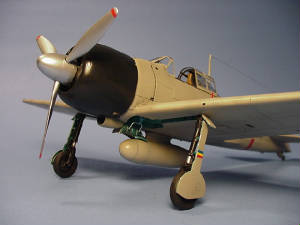
Wheel wells and cockpit were first painted in Floquil Old Silver. Then a semi-transparent coat of Testors Metallic
Emerald Green mixed 2:1 with Modelmaster Russian Metallic Blue was applied to simulate the aotake protective coating. After
that dried, a coat of Future was applied and much of the cockpit received a coat of WEM Nakajima Interior Green with a
few choice boxes and bits masked to preserve the aotake in order to suggest the effects of different subcontractors contributing
various parts. The aft decks were painted with a 1:1 mixture of Floquil Engine Black and Modelmaster Panzer Grey.
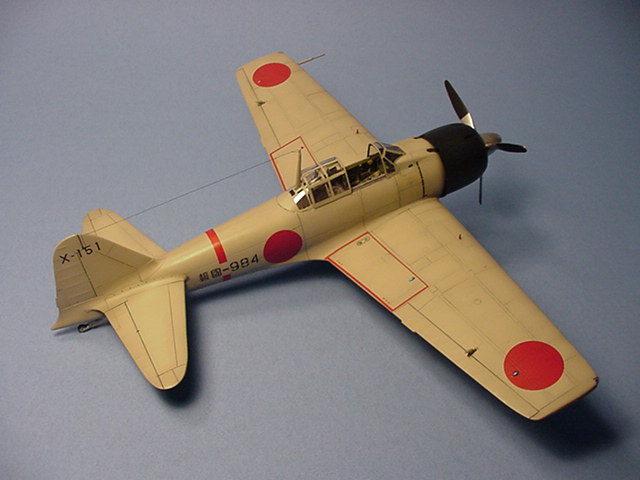
|

